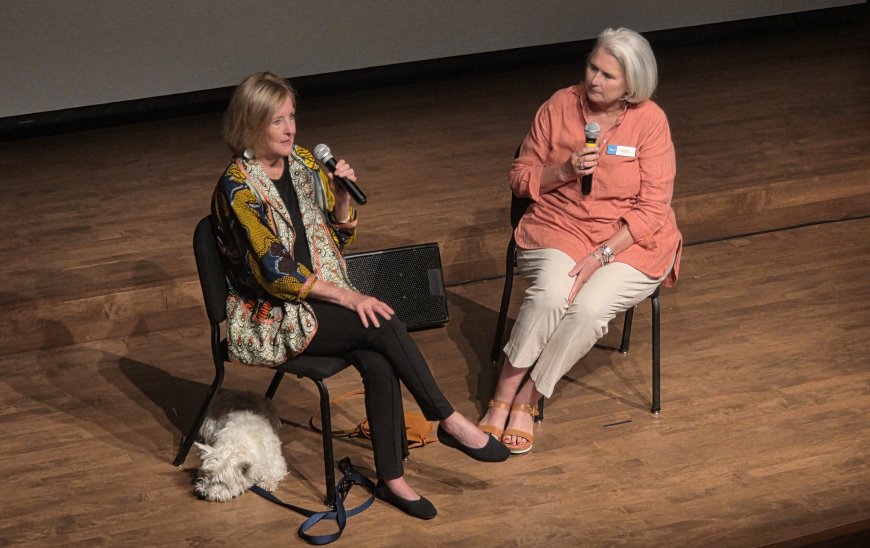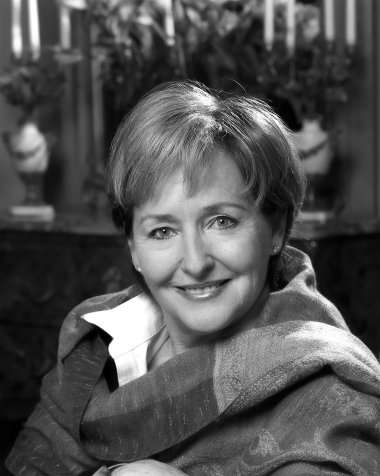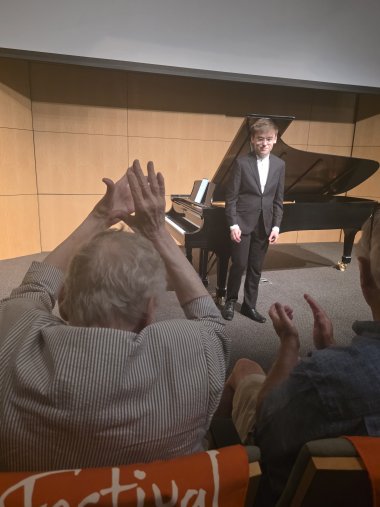
Onscreen in Flicka: A Love Letter, composer Jake Heggie refers to the subject of the film as “the walking embodiment of love.” The documentary about the widely-adored mezzo-soprano Frederica von Stade, who turned 80 last month and lives with her husband in Alameda, was screened last Saturday at Napa’s Jarvis Conservatory as part of Festival Napa Valley.
Directed by Brian Staufenbiel (creative director of Opera Parallèle) and produced by Nicolle Foland (director of special projects for Rork Music), Flicka follows an innovatively imaginative approach, drawing together the life story, testimony, and music of its subject. The result is entertaining on all counts.

Nicknamed for a courageous fictional horse, von Stade is depicted in a few of her early roles with the Metropolitan Opera and other companies. Fellow singers Renée Fleming and Susan Graham praise her for her amiable and supportive mien as much as for her lustrous, colorful voice. Heggie speaks of making her acquaintance when he worked in public relations for the San Francisco Opera, beginning a relationship that evolved as von Stade showcased his early songs and later found “the most special role of my life” as Mrs. Patrick De Rocher in Heggie’s Dead Man Walking.
Her service as a mentor is manifested at the San Francisco Conservatory and in her recent work with choral groups of underserved youth in the East Bay. The challenges and rewards of maintaining her home life are shared by von Stade’s family. The film’s special effects include animation and a montage of images of the singer morphing through some 40 years in the same role and costume.
Present for the screening, von Stade proved as witty and winning offscreen as on during a Q-and-A session with the audience moderated by Lissa Gibbs, the Festival’s VP of Education and Community. Flicka has been seen at film festivals and will be scheduled for streaming release.
The delightful variety in this year’s musical bounty was evident even in a Monday morning recital of the piano works of a single composer at the Culinary Institute of America at Copia Ecolab Theatre. Pianist Forrest Eimold, 25 years old and himself the winner of the Festival’s Daniel Brewbaker Composer Prize, showcased keyboard works by 91-year-old Gordon Getty, also a Festival founding benefactor.

The program opened with a sweet, auroral tribute to a pair of the composer’s grandnephews. A “Scherzo Pensieroso” sped things up to a fast canter, with canny counterpoint and some Chopinesque ornamentation. Across Four Traditional Pieces, Getty invoked some Celtic patronymic forebears with fiddle-like trills and liftoffs, Alpine dance themes, chords followed by naughty chirps outside the triad structure, and capricious, unexpected endings. Impenitent Ultima, based on a poem by Ernest Christopher Dowson, offered a fuller display of the interpretive breadth of both composer and performer, with somewhat Brahmsian variations on a theme.
The Ancestor Suite (2010) is also related to Getty’s 2014 opera Usher House, and served here as an intriguing showcase of dance forms, including a spectral invitation in waltz form, a scherzo-like Schottische suggestive of Dmitri Shostakovich, and a subversive March and Sarabande. Madeline, the fated femme in Edgar Allan Poe’s Fall of the House of Usher, is portrayed in a musical valentine, imbued with dolor. Eimold and Getty finished with another affecting changeup, Follow Me, a sort of playground processional.
Seated in the front row, Getty clearly enjoyed this handling of his oeuvre. In turn, Eimold was smiling as Getty would quietly exclaim “Oh, yeah!” The young pianist was forthcoming in commentary between the pieces about his take on Getty’s music as “full of whimsical dynamics” with “something enigmatic about them.”
Lauding the elder composer for using “no more notes than necessary,” Eimold deployed an appropriately clean, precise approach to the Steinway, forceful where fitting but also aerating the musical lines with moments of thoughtful silence. We may hope to hear and see more of him.

